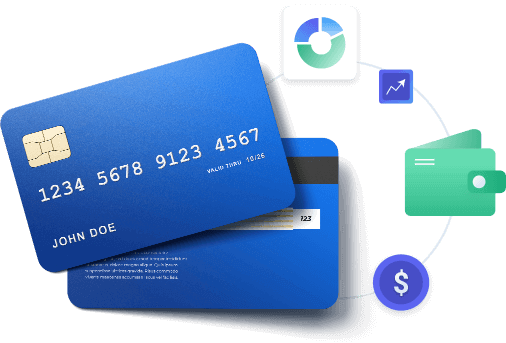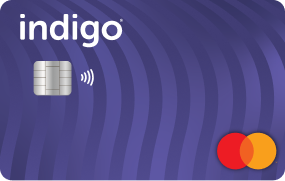From credit cards to begin credit building to substantial sign-up incentives and generous rewards, explore these partner offers to find one that’s right for you.



Introducing the FairFigure Card - A True “EIN-Only” Business Credit Builder Card
Build your business credit AND get funded at the same time! No personal guarantees, paperwork, or FICO required. Funding is based on business revenue, not personal credit scores.

Destiny is the partner you want on your credit journey. It’s designed to help you move forward, even if you have a challenging credit history.

Milestone offers a straightforward opportunity to build and access credit. It’s specifically designed for those with challenging credit histories working to establish a solid financial foundation.

It’s true! If you’ve got less than perfect credit, Indigo Mastercard® will help you make your dreams a reality.
From credit cards to begin credit building to substantial sign-up incentives and generous rewards, explore these partner offers to find one that’s right for you.
Take advantage of these calculators to help you choose the best online money lenders.
Make informed decisions about home financing options. Calculate your ideal down payment, understand loan repayment schedules with our amortization calculator, and explore FHA loan options with ease.
$0
The investment return after 1 year is:A credit card enables you to borrow money from a bank for making purchases. The credit card company will issue a monthly statement detailing your transactions. If you fail to settle the entire balance by the due date, you'll incur interest charges on the remaining amount borrowed.
Having credit cards is necessary to begin building a credit score. People with good credit can access better rates on loans and mortgages. They can also qualify for higher limits on their credit cards. Good credit can even help you get a job or rental application.
The basic eligibility criteria for car loan financing are listed below:
The Annual Percentage Rate (APR) represents the interest rate imposed if the credit card statement remains unsettled beyond the due date. This rate is divided by 365, resulting in daily interest charges applied to the remaining balance. To secure a lower APR, it's essential to maintain a good credit rating, which can be attained by responsibly utilizing credit cards to begin building credit.
In cases where the APR is denoted as 'variable,' it signifies a linkage to the Federal Reserve's prime rate, thereby subjecting your credit card interest rate to fluctuations based on changes in the prime rate.
Introductory APRs of 0% may be extended for a specified duration by certain cards, following which an ongoing APR will be imposed on any outstanding balances.
A good APR depends on the type of credit card and your credit score. Some credit cards charge a standard APR to all its customers and others charge an APR between a certain percentage range, for example from 19.99% to 29.99%, depending on the customer’s credit score. The APR will likely be higher for credit cards used to begin building credit.
As of August 2023, the Federal Reserve reported that the average APR for credit cards that incurred interest was 22.77%. An APR below that average would be considered a good rate. Rewards cards often have higher APRs, so if you choose rewards cards, it's wise to conduct cash back credit card comparison to maximize benefits. In addition, different types of transactions, for example, cash advances may result in different APRs being applied to the same card.
Increasing your credit score can help you qualify for a better credit card APR. Here are some useful tips for utilizing credit cards to begin credit:
You can transfer your existing credit card debt to a new card through a balance transfer. Typically, most cards levy a one-time fee based on the transferred balance (typically between 3-5%). Additionally, certain cards offer the option to transfer your debt and enjoy a period without accruing interest on the balance (usually 6-12 months). Consider this in addition to other perks and rewards like cash back in your credit card comparisons.
You can begin to build credit through credit cards by using one or more of the following approaches:
LendMeMoney considers a range of factors, including:

Lorem ipsum dolor sit amet, consectetur adipiscing elit, sed do eiusmod tempor incididunt ut labore et dolore magna aliqua. Diam donec adipiscing tristique risus nec. Nullam ac tortor vitae purus faucibus ornare suspendisse. Adipiscing tristique risus nec feugiat in fermentum. Neque volutpat ac tincidunt vitae semper.